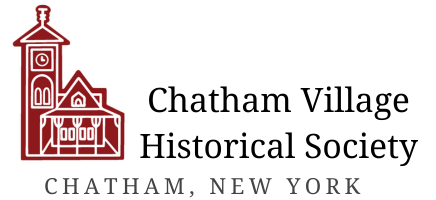A treasure trove of local history, the farmhouse is what remains of an early 19th century Chatham village farm. The farmhouse is on the National Register of Historic Places, and is maintained by Chatham Village Historical Society with the intention to eventually fully restore it to house a local history museum.
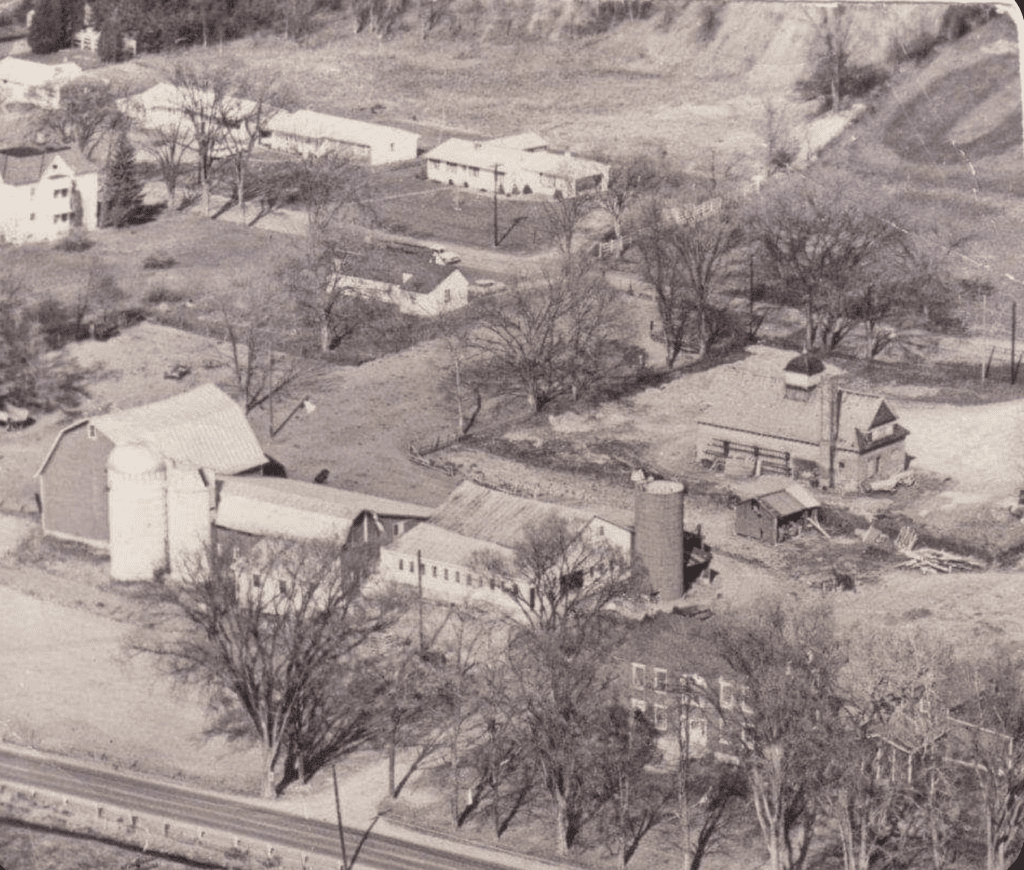
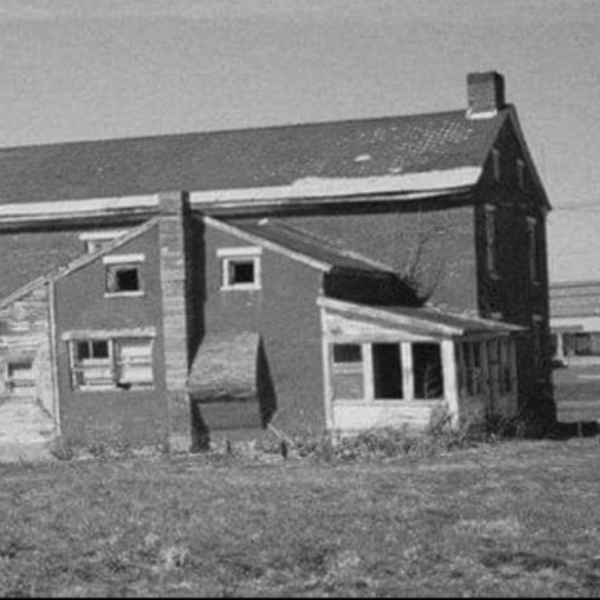
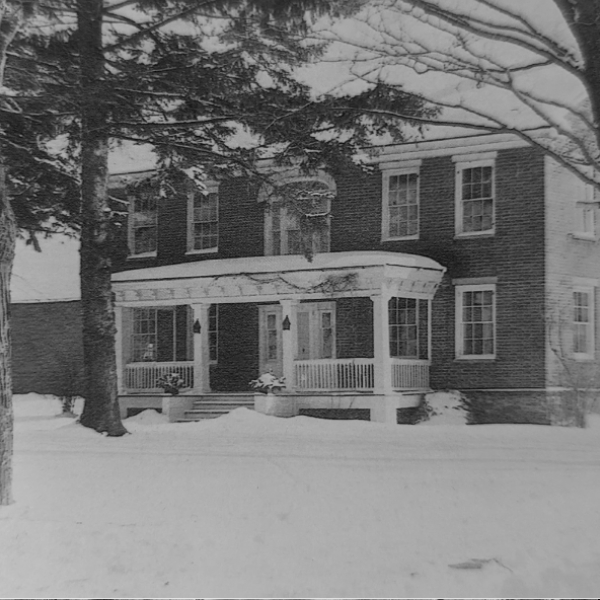
The story of the Blinn-Pulver Farmhouse begins in the early 19th century or late 18th century when a wooden structure containing a kitchen, loft, and beehive oven was built on the site. Not much is known about the builder, inhabitants, or even exact year of construction.
The brick house we know today was built in 1814 onto the front of the previous brick structure, pictured above (second photo). This image shows a rear view of the brick house, featuring this original kitchen structure and additional enclosed wood porches. The original structure was removed from the house and the brickwork repaired in 2013, as it’s declining condition was endangering the structural integrity of the rest of the farmhouse.
The farmhouse has had a succession of owners and residents that we know of, including members of the Crandal, Van Deusen, Rivenburg, Westover, Blashfield, Blinn, Griggs, and Pulver families.
The Blinn-Pulver Farmhouse in the 1800s…
In 1853, William Groat and his wife Augusta purchased the 182-acre farm and agreed to the maintenance of a road “not less than two rods in width” running north to south. A rod is a surveying measure equal to 16.5 feet; this road is the current Union Turnpike/Route 66.
In 1867, Philo Blinn and his wife Helen Osborn Blinn purchased the farm. Philo was a farmer and speculator who held mortgages, traded horses, and helped create the Chatham village water department on farm land.
Philo Blinn kept a meticulous diary from roughly 1859 to 1872, noting loans and costs, local happenings, family history, and more. The details included in this diary make it an invaluable resource to those researching Columbia County history, or the history of farming in the New York area during the Civil War era. A transcript of the Blinn diary is held at the Chatham Public Library.
The Chatham Water Works
In 1886, The Chatham Water Works applied for a charter with H.W. McClellan (president), George E. Drumm (vice president), Philo B. Blinn (treasurer), and Philo B. Blinn Jr. (secretary). The brick pumping station was built on Blinn’s land, bordering Payn Avenue.
The village of Chatham purchased the Water Works building in 1912 and used it for the highway department until it was torn down in 1972.
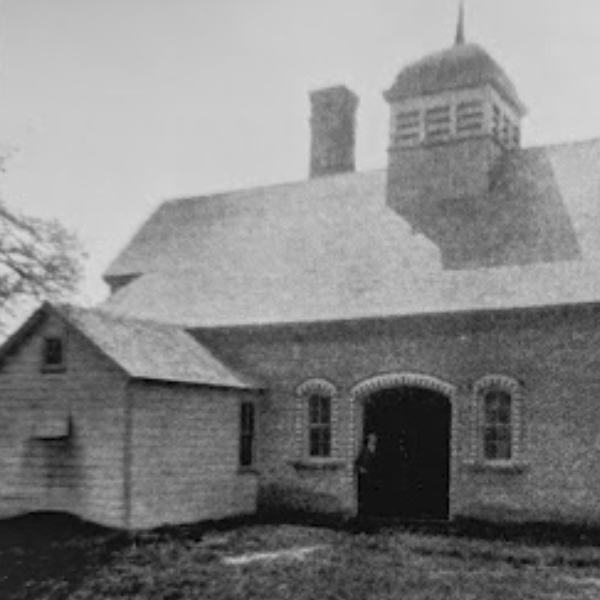
The Blinn-Pulver Farmhouse in the 1900’s through today…
Clyde and Maude Pulver purchased the farm and house in 1951 and operated a dairy farm on the property for several decades.
The house was left vacant around 1990, and much of the surrounding property parceled and sold.
The farmhouse was added to the National Register of Historic Places in 2003 as the Blinn-Pulver Farmhouse, named for the two families which inhabited it the longest.
Chatham Village Historical Society has spent more than a decade in the pursuit of ownership and restoration of the Blinn-Pulver Farmhouse. Our efforts have included structural straightening of the house in 2009, a repair and replacement of the roof in 2010, repair and restoration of the soffits in 2012, and the removal of the old kitchen/repair of the brick rear face in 2013. We have also collected numerous historic artifacts and structures which are stored on the property; we intend to restore these structures, which include a green railroad crossing shack which originally stood on Main Street, a railroad speeder that was used for track inspection and maintenance on the Harlem line, and a two-person outhouse which originally stood at the Harlem train depot.
The generous volunteer time and financial support from the community allows Chatham Village Historical Society to recognize its goals of maintaining and restoring these valuable historical items, records, and structures, including the Blinn-Pulver Farmhouse. Please consider supporting Chatham Village Historical Society in these efforts.
